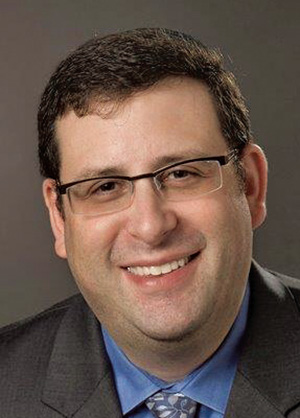
Editor’s Note: We welcome a new column by Jonathan (Yoni) Schick, President of GOAL Consulting Group.
“We do not appoint a leader over the community unless he has a sack of loathsome things hanging behind his back.” (Talmud Yoma 22b)
Essentially, the Talmud is saying that a leader must have (and be mindful of) a measure of skeletons in his or her closet.
In this piercing observation, our rabbis arrive at the heart of the leadership paradox: In the mind of the constituent or trustee, the leader is often expected to be mythically perfect; yet to be successful, the leader must be acutely aware of his or her imperfections.
King Saul is the classic example of what goes wrong when leaders are held, or hold themselves, to absurd standards of perfection. Despite Saul’s brilliance, this caused him to adopt an “all or nothing” approach to monarchy: He was “overly righteous” (see Kohelet 7:16) by letting the seed of Amalek survive; yet, he was “overly wicked” in his violent pursuit of David who hid in the priestly city of Nob (Samuel I: 22).
Neither approach befits a truly successful communal leader. Like King David, a leader must be cognizant of his fallibility.
In practice, this dynamic looks like this: Through their own self-awareness, professional leaders serve their constituencies within a framework of equanimity and compassion. Yet, the converse must also be true: The leader should be judged within a standard of reasonable expectations.
Unfortunately, this concept gets lost on many, leading to issues such as micromanagement, conflicts of interest, rapid turnover and poor succession planning. Sometimes the right leader is let go for no reason, while other times the wrong leader keeps his job way past his expiration date. And it contributes to the governance and leadership vacuum that impacts our schools, synagogues and nonprofit organizations.
At its core, this issue may be the 800-pound behemoth in our collective board rooms. A new conversation must be started that asks questions such as: Are we employing measurable, objective standards to assess leadership performance? Are there practices embedded in our culture that compromise our leader’s commitment to Jewish communal service? Is there a dissonance between the lofty nonprofit and educational missions we espouse, and what really goes on behind closed doors?
In a climate of perfect expectations and capricious standards, this conversation can’t begin. We know, though, that our current and future leaders possess the talent, idealism, and dedication that we can’t afford to lose. Let’s begin the conversation.
By Jonathan “Yoni” Schick
Jonathan (Yoni) Schick is a dynamic leadership consultant and nationally known speaker who has founded two successful Jewish high schools and consulted for hundreds of organizations. As president of GOAL Consulting Group, Jonathan’s clients include the American Red Cross, United Way and the University of North Texas. He is the author of “The Nonprofit Secret: Six Principles of Successful Board/CEO Partnerships.” You can reach Jonathan at [email protected].








